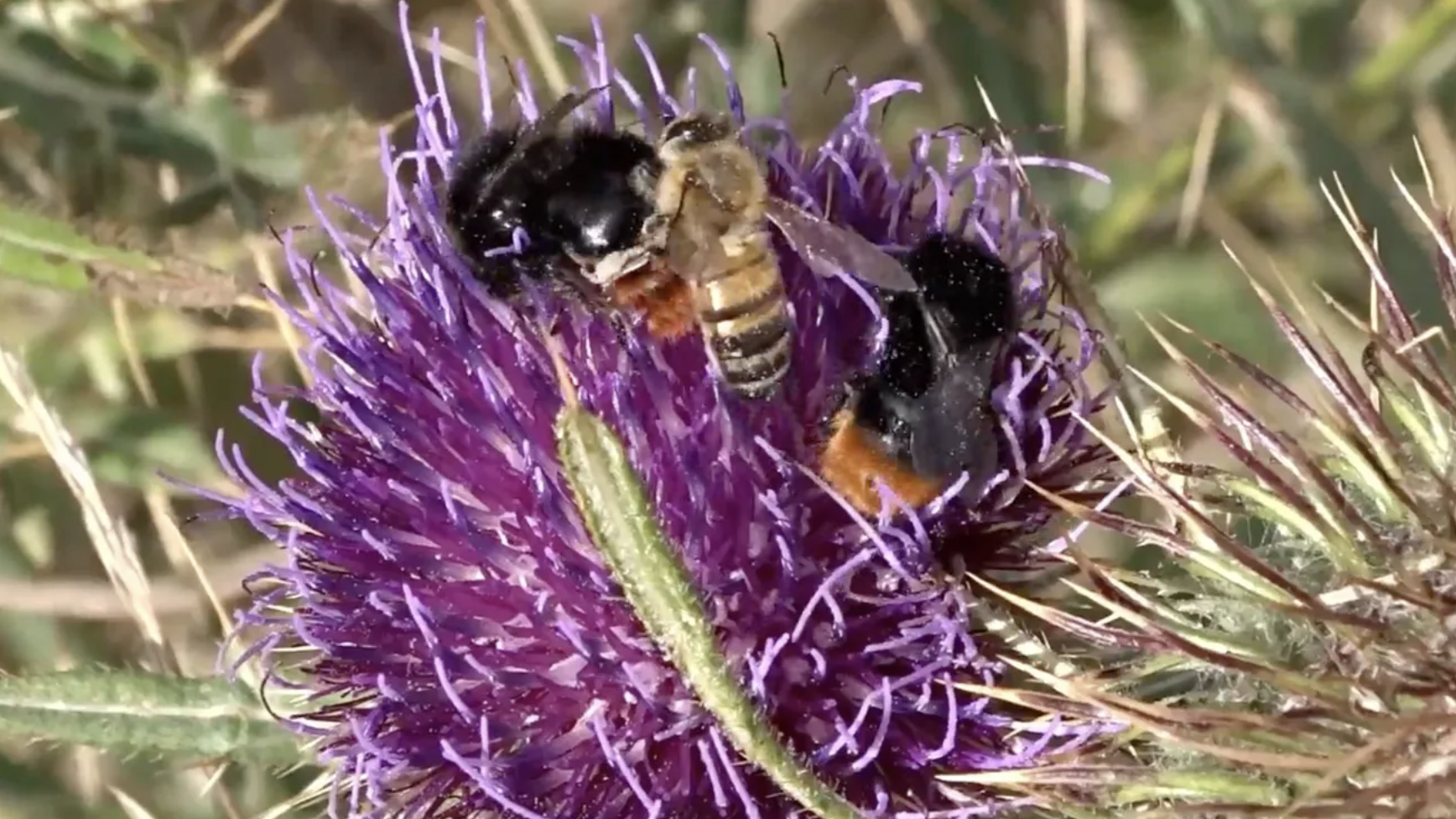Bees depend on pollen as a protein-rich food source. And some are even willing to steal from other bees to get them.
There have been hay thefts in the United States before. But now scientists in Italy have also observed honey bees collecting pollen from the backs of bumblebees. The observations, published December 21 in the journal Apidology, constitute one of the most extensive documentation of bee predation to date.
In the summer of 2019, while on a trip to Mount Antola in Liguria, northern Italy, independent naturalists from Milan, Tiziano Londei and Giuliana Marzi, recorded video of what they believed to be honey bee (Apis mellifera) flowers. Woolly thistle (Cersium eriophorum) tries to repel wasps. However, a closer look at the video shows that this was not a case of competitive harassment – it was a simple robbery.
As red-tailed bumblebees (Bombus lapidarius) hover around flowers in search of nectar and pollen, some pollen grains stick to their furry bodies (SN: 9/6/17). Londi and Margie watched as the bees shamelessly scooped up the pollen for themselves. Thieves attacked male bumblebees slightly more often than females because males seemed less concerned about the theft (although females did not react as aggressively).
“Bees are called pollen,” says biologist Avery Russell of Missouri State University in Springfield, who was not involved in the study. So stealing pollen from the bodies of bumblebees, he says, “doesn’t seem far-fetched.”
To find out how widespread this crime was, researchers returned to the site twice over the next three years and also observed bees at two other sites about 25 kilometers away. In other places, honey bees were not observed robbing bumblebees, but the bees mainly continued their predatory lifestyle year after year. For example, bees collected pollen from only three of the 31 flowers researchers observed in 2021, but stole pollen from 28 of the 66 available bumblebees.
By examining the differences between these places, researchers suspect that bees are stealing from areas where it is difficult for them to obtain pollen from flowers (bees have difficulty collecting pollen from woolly thistles) but where many other bees are present.
Bee pollen theft had previously only been observed in North America, first in Kansas and later in California and Indiana. Behavioral research in Italy suggests it may be a global crime. Next time, Russell says, it would be good to know whether pollen theft is adversely affecting bumblebees or the flowers they pollinate. He’s also curious if other bees will ever steal pollen. “We saw bumblebees in the hive pecking at each other’s pollen baskets,” he says.
